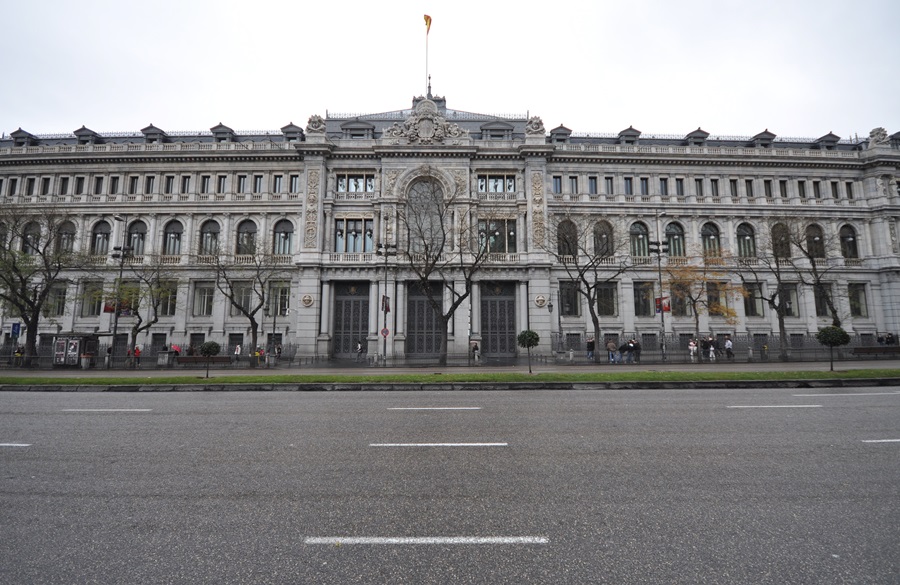An association of banks in Spain has announced the creation of a blockchain-based system that will provide their clients with digital identification verification. Called the Niuron, the consortium aims to develop the platform by the end of the year to increase the efficiency of operations and bolster its protection for itself and its clients from illicit actors, Cointelegraph reported.
Similar to other banks that have already adopted the technology, Niuron believes that it can leverage the advantages of blockchain to accelerate transactions, decrease fraud, and counter money-laundering activities. The association is also looking forward to improving their clients’ experience as the system can effectively reduce the time of the registration procedure and provide their customers with more control over their personal information.
The Niuron collective has nine banks within its fold, four of which are on the top 10 list of Spain’s largest financial institutions. After the completion of the blockchain platform, client data will be shared among these banks. The consortium will then follow the laws imposed by the recently released EU General Data Protection Regulation (GDPR) and other security standards.
A regulatory foundation is slowly being developed by Spain, with the drafts inspired by the GDPR itself, as admitted by Rodrigo García de la Cruz, president of the Spanish Fintech and Insurtech Association. The country is making these efforts in order to support fintech startups, hoping that it would encourage their proliferation in the country.
However, some of GDPR’s provisions are in contradiction with the very nature of blockchain itself: immutable storage of data. For instance, the new EU regulation grants an individual the right to request deletion of their data from companies that have stored their information. This right is called the “right of erasure.” But because blockchain is a decentralized network, it’s still unclear how this right will be enforced against the technology’s immutable data storage design.
Of course, similar to a lot of things, a middle ground can always be reached. Where that middle ground lies, however, remains unknown at the moment.



 Amazon Stock Rebounds After Earnings as $200B Capex Plan Sparks AI Spending Debate
Amazon Stock Rebounds After Earnings as $200B Capex Plan Sparks AI Spending Debate  Jensen Huang Urges Taiwan Suppliers to Boost AI Chip Production Amid Surging Demand
Jensen Huang Urges Taiwan Suppliers to Boost AI Chip Production Amid Surging Demand  Anthropic Eyes $350 Billion Valuation as AI Funding and Share Sale Accelerate
Anthropic Eyes $350 Billion Valuation as AI Funding and Share Sale Accelerate  Oracle Plans $45–$50 Billion Funding Push in 2026 to Expand Cloud and AI Infrastructure
Oracle Plans $45–$50 Billion Funding Push in 2026 to Expand Cloud and AI Infrastructure  Global PC Makers Eye Chinese Memory Chip Suppliers Amid Ongoing Supply Crunch
Global PC Makers Eye Chinese Memory Chip Suppliers Amid Ongoing Supply Crunch  TSMC Eyes 3nm Chip Production in Japan with $17 Billion Kumamoto Investment
TSMC Eyes 3nm Chip Production in Japan with $17 Billion Kumamoto Investment  Sony Q3 Profit Jumps on Gaming and Image Sensors, Full-Year Outlook Raised
Sony Q3 Profit Jumps on Gaming and Image Sensors, Full-Year Outlook Raised  Elon Musk’s SpaceX Acquires xAI in Historic Deal Uniting Space and Artificial Intelligence
Elon Musk’s SpaceX Acquires xAI in Historic Deal Uniting Space and Artificial Intelligence  Nvidia Confirms Major OpenAI Investment Amid AI Funding Race
Nvidia Confirms Major OpenAI Investment Amid AI Funding Race  Instagram Outage Disrupts Thousands of U.S. Users
Instagram Outage Disrupts Thousands of U.S. Users  Nvidia CEO Jensen Huang Says AI Investment Boom Is Just Beginning as NVDA Shares Surge
Nvidia CEO Jensen Huang Says AI Investment Boom Is Just Beginning as NVDA Shares Surge  Baidu Approves $5 Billion Share Buyback and Plans First-Ever Dividend in 2026
Baidu Approves $5 Billion Share Buyback and Plans First-Ever Dividend in 2026  SpaceX Updates Starlink Privacy Policy to Allow AI Training as xAI Merger Talks and IPO Loom
SpaceX Updates Starlink Privacy Policy to Allow AI Training as xAI Merger Talks and IPO Loom  Tencent Shares Slide After WeChat Restricts YuanBao AI Promotional Links
Tencent Shares Slide After WeChat Restricts YuanBao AI Promotional Links  Google Cloud and Liberty Global Forge Strategic AI Partnership to Transform European Telecom Services
Google Cloud and Liberty Global Forge Strategic AI Partnership to Transform European Telecom Services  SoftBank Shares Slide After Arm Earnings Miss Fuels Tech Stock Sell-Off
SoftBank Shares Slide After Arm Earnings Miss Fuels Tech Stock Sell-Off  OpenAI Expands Enterprise AI Strategy With Major Hiring Push Ahead of New Business Offering
OpenAI Expands Enterprise AI Strategy With Major Hiring Push Ahead of New Business Offering 





























